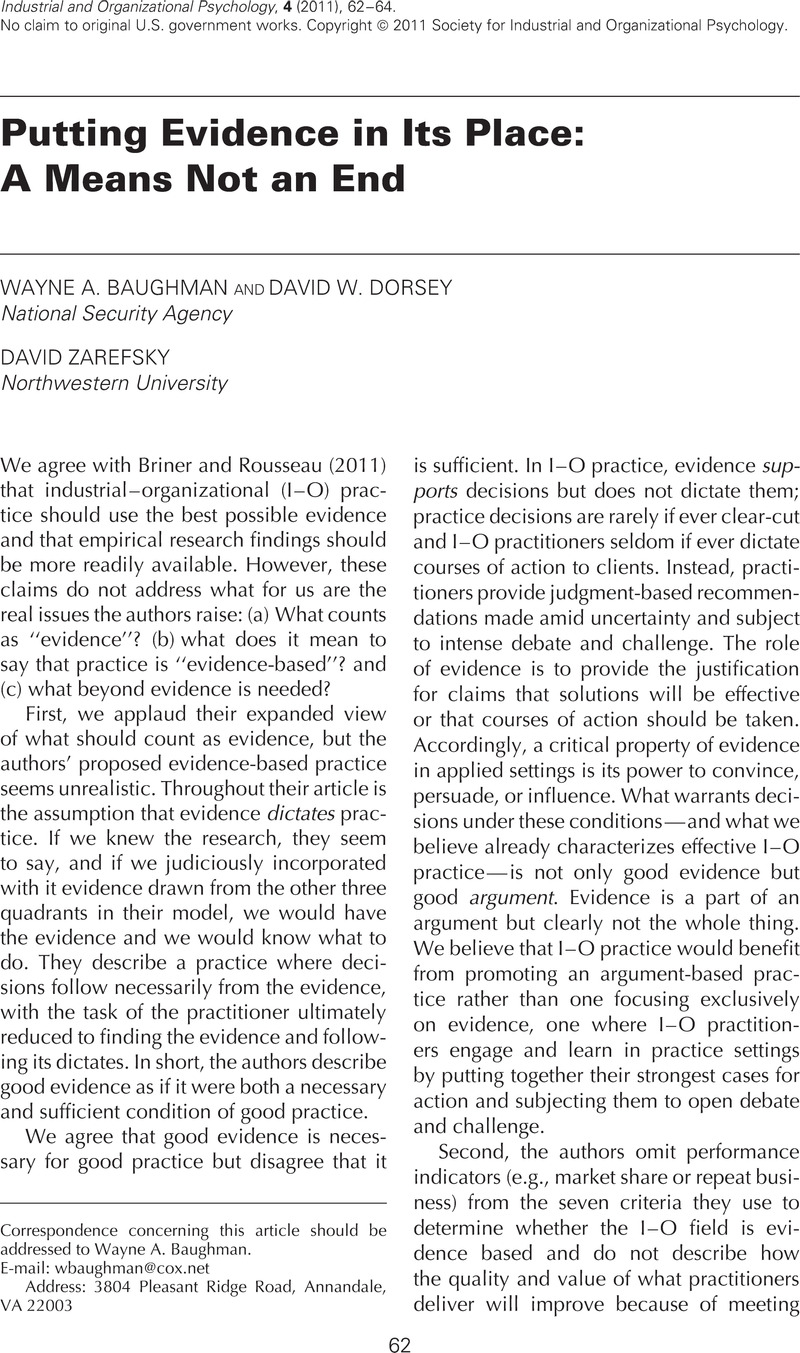Crossref Citations
This article has been cited by the following publications. This list is generated based on data provided by Crossref.
Briner, Rob B.
and
Rousseau, Denise M.
2011.
Evidence-Based I–O Psychology: Not There Yet but Now a Little Nearer?.
Industrial and Organizational Psychology,
Vol. 4,
Issue. 1,
p.
76.
Hodgkinson, Gerard P.
2012.
The Oxford Handbook of Evidence-Based Management.
p.
404.
Romme, A. Georges L.
Avenier, Marie‐José
Denyer, David
Hodgkinson, Gerard P.
Pandza, Krsto
Starkey, Ken
and
Worren, Nicolay
2015.
Towards Common Ground and Trading Zones in Management Research and Practice.
British Journal of Management,
Vol. 26,
Issue. 3,
p.
544.
Nokes, Karen
and
Hodgkinson, Gerard P.
2017.
Methodological Challenges and Advances in Managerial and Organizational Cognition.
Vol. 2,
Issue. ,
p.
95.
Wijngaards, Indy
King, Owen C.
Burger, Martijn J.
and
van Exel, Job
2022.
Worker Well-Being: What it Is, and how it Should Be Measured.
Applied Research in Quality of Life,
Vol. 17,
Issue. 2,
p.
795.



